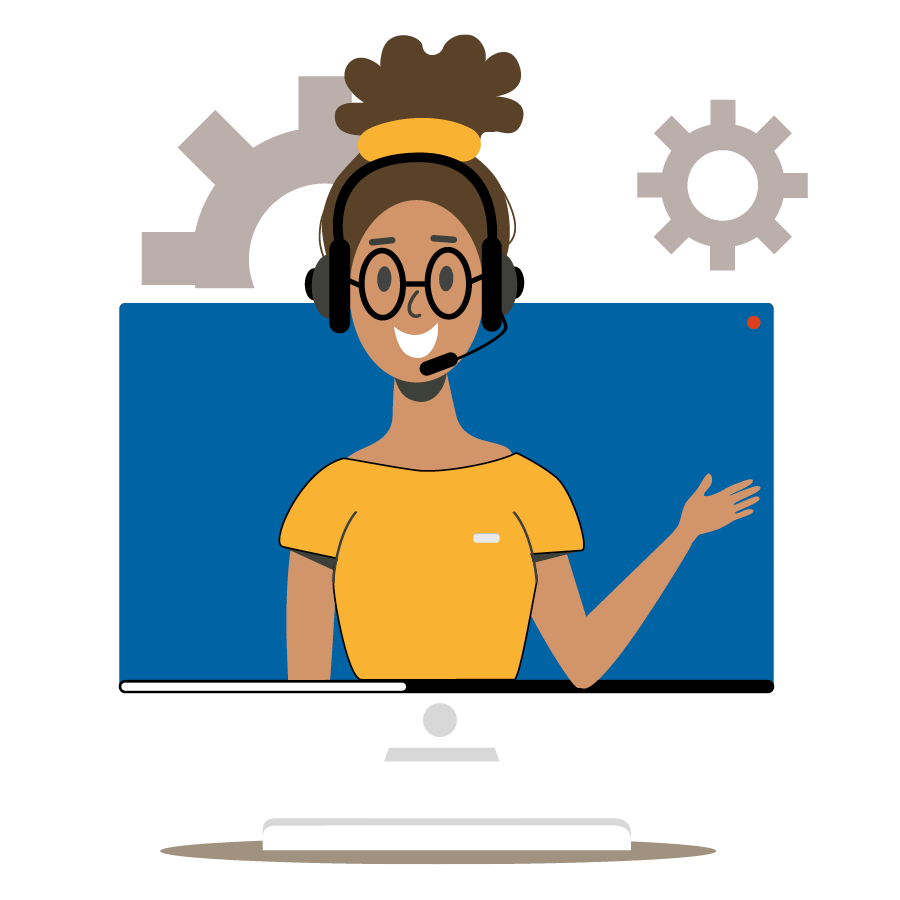We understand each other – video and telephone interpreting in educational institutions Free service for all types of schools
Every day in educational institutions, complex and emotionally charged issues such as early support, a child’s development and performance or career decisions are discussed between parents/guardians, pupils and teachers. In the process, linguistic and cultural misunderstandings often occur, and these can have a negative impact on the child’s or young person’s development.
Involving professionally trained interpreters at an early stage can provide a quick and straightforward solution. Clear communication of rights, responsibilities, concerns and requests can help avoid misunderstandings and thus build trust during discussions. This takes some of the pressure off teachers during their working day and helps prevent employees with foreign language skills or children and young people from having to act as interpreters. This means that no one is put under any additional pressure, and the risk of things being interpreted wrongly or incompletely as a result can be avoided.
Extension of the offer for all types of schools as of September 2023
The already well-known and so far very well used offer of video and telephone interpreting in 61 languages (see below) continues to be available nationwide to all types of schools around the clock, free of charge. Schools that already have access can continue to use it. Schools that would like to use the service in the future can register at any time at bildung@savd.at.

Languages available
Interpreting services are available in a total of 61 languages. Interpreting in one of the 17 most frequently needed languages (main or ad hoc languages) can be provided within a few minutes. For other languages (secondary languages), an interpreting appointment can be booked within a few days.
17 main languages
Albanian | Arabic – Modern Standard Arabic1 | Bosnian/Croatian/Serbian | Bulgarian | Czech | Dari | English | Farsi | French | Hungarian | Kurdish – Kurmanji | Polish | Romanian | Russian | Slovak | Spanish | Turkish
1 There are a variety of dialect groups in Arabic. Modern Standard Arabic is often only spoken in large towns and cities. Before asking for an interpreter, it is important to clarify which type of Arabic is spoken and understood by the person concerned.
30 secondary languages
Armenian | Azerbaijani | Bengali | Chechen | Chinese | Dutch | Filipino (Tagalog) | Georgian | Greek | Hebrew | Hindi | Italian | Japanese | Kurdish – Sorani | Kyrgyz | Latvian | Lithuanian | Macedonian | Mongolian | Nepali | Pashto | Portuguese | Punjabi | Sign language (Austrian Sign Language – ÖGS) | Slovenian | Tamil | Thai | Ukrainian | Urdu | Vietnamese
14 african languages and dialects
Amharic | Berber | Fula | Igbo | Kinyarwanda | Kirundi | Kiswaheli | Malinke | Moroccan Arabic | Oromo | Somali | Susu (Mande language) | Tigre | Tigrinya
Video tutorials
Video tutorials (only German) showing you how to use the service are available on the platform’s website once you have logged in.
Registration and technical support
If you are interested in using the service, please register directly at bildung@savd.at.
If you have any technical questions, you can contact SAVD Videodolmetschen GmbH’s support service free of charge by phone on +43 1 3321305 or by email at support@savd.at.
A wide range of information in German is available to download from the German version of this website.
Translated welcome letter for educational institutions in German – Ukrainian – Russian
- Welcome letter for schools (Word, 48 KB) (only in German)